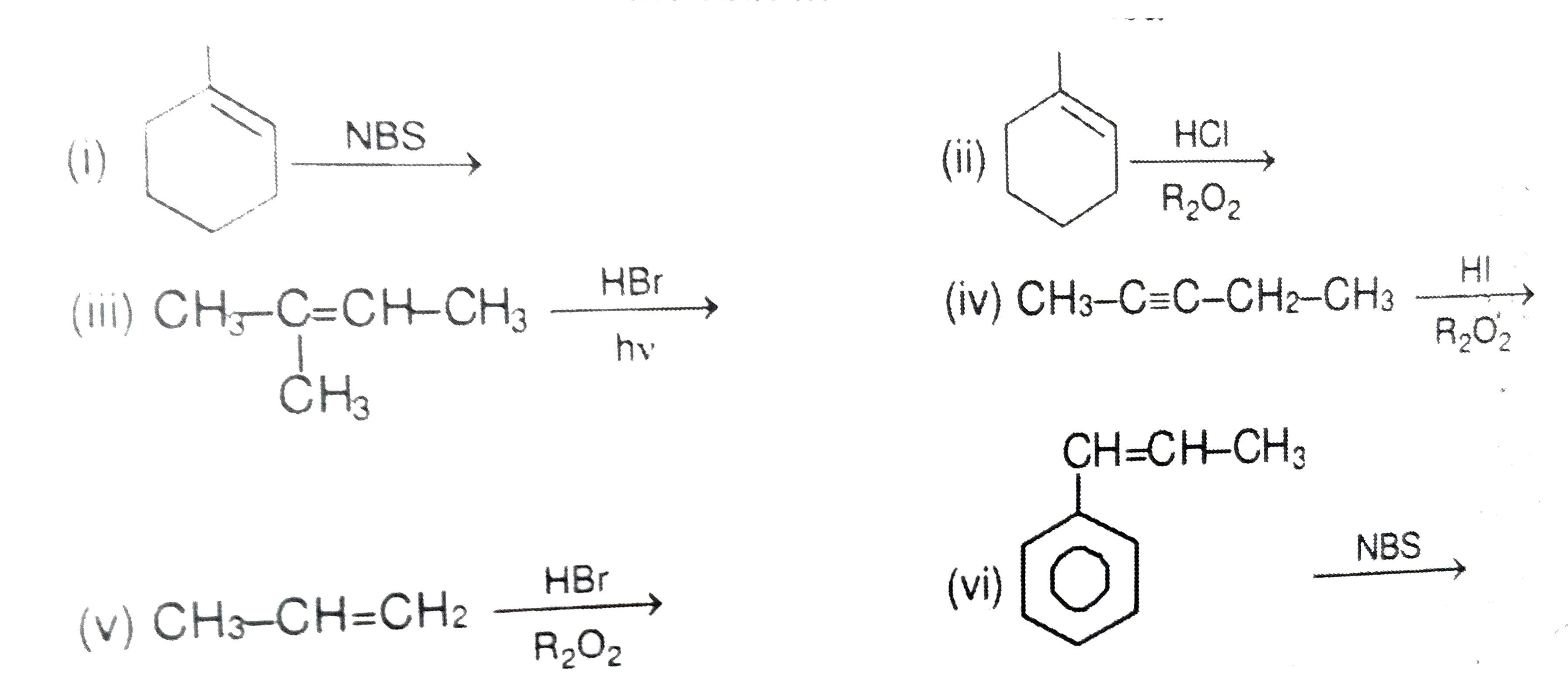STATEMENT-1: Styrene is more reactive than ethylene towards free radical polymerization
and
STATEMENT-2: Polymerization of styrene proceeds through more stable benzyl free radical.
Statement-1 is True, Statement-2 is True, Statement-2 is a correct explanation for Statement-3
Statement-1 is True, Statement-2 is True, Statement-2 is NOT a correct explanation for Statement-3
Statement-1 is True, Statement-2 is False
Statement-1 is False, Statement-2 is True
The correct Answer is:A
To analyze the statements provided in the question, we will break down the reasoning step by step.
Step 1: Understanding the Structures
- Styrene has the structure: C6H5-CH=CH2 (a phenyl group attached to a vinyl group).
- Ethylene has the structure: CH2=CH2 (a simple alkene).
Hint: Identify the structures of the compounds involved to understand their reactivity.
Step 2: Free Radical Polymerization
- In free radical polymerization, a free radical initiator generates free radicals that react with the double bond of the monomers (styrene and ethylene) to form new radicals.
- For styrene, the radical formed will be more stable due to the presence of the benzene ring, which allows for delocalization of the radical.
Hint: Consider how the structure of each monomer affects the stability of the radicals formed during polymerization.
Step 3: Stability of Radicals
- The radical formed from styrene (benzyl radical) is stabilized by resonance with the benzene ring. This delocalization makes the benzyl radical more stable than the radical formed from ethylene.
- The radical formed from ethylene is less stable as it does not have such resonance stabilization.
Hint: Think about how resonance and delocalization contribute to the stability of radicals.
Step 4: Reactivity Comparison
- Since the benzyl radical is more stable, the polymerization of styrene is favored, making styrene more reactive than ethylene in free radical polymerization.
- Therefore, Statement 1 is correct: "Styrene is more reactive than ethylene towards free radical polymerization."
Hint: Compare the reactivity of the two monomers based on the stability of the radicals they form.
Step 5: Evaluating Statement 2
- Statement 2 claims that "polymerization of styrene proceeds through a more stable benzyl free radical." This is also true, as the stability of the benzyl radical due to resonance is a key factor in the reactivity of styrene.
Hint: Assess whether the stability of the radical affects the polymerization process.
Conclusion
Both statements are correct:
- Statement 1 is true because styrene is indeed more reactive than ethylene due to the stability of the benzyl radical formed during polymerization.
- Statement 2 is true as the polymerization of styrene occurs through the more stable benzyl free radical.
Final Answer: Both statements are correct.
- Styrene has the structure: C6H5-CH=CH2 (a phenyl group attached to a vinyl group).
- Ethylene has the structure: CH2=CH2 (a simple alkene).
- In free radical polymerization, a free radical initiator generates free radicals that react with the double bond of the monomers (styrene and ethylene) to form new radicals.
- For styrene, the radical formed will be more stable due to the presence of the benzene ring, which allows for delocalization of the radical.
- The radical formed from styrene (benzyl radical) is stabilized by resonance with the benzene ring. This delocalization makes the benzyl radical more stable than the radical formed from ethylene.
- The radical formed from ethylene is less stable as it does not have such resonance stabilization.
- Since the benzyl radical is more stable, the polymerization of styrene is favored, making styrene more reactive than ethylene in free radical polymerization.
- Therefore, Statement 1 is correct: "Styrene is more reactive than ethylene towards free radical polymerization."
- Statement 2 claims that "polymerization of styrene proceeds through a more stable benzyl free radical." This is also true, as the stability of the benzyl radical due to resonance is a key factor in the reactivity of styrene.
Both statements are correct:
- Statement 1 is true because styrene is indeed more reactive than ethylene due to the stability of the benzyl radical formed during polymerization.
- Statement 2 is true as the polymerization of styrene occurs through the more stable benzyl free radical.
Topper's Solved these Questions
- POLYMERSBOOK - AAKASH INSTITUTE ENGLISHCHAPTER - POLYMERSEXERCISE - ASSIGNMENT Section-F (Matrix match Type Questions )
6 Videos
- POLYMERSBOOK - AAKASH INSTITUTE ENGLISHCHAPTER - POLYMERSEXERCISE - ASSIGNMENT Section-G (Integer Answer Type Questions )
4 Videos
- POLYMERSBOOK - AAKASH INSTITUTE ENGLISHCHAPTER - POLYMERSEXERCISE - ASSIGNMENT Section-D (Linked Comprehension Type Questions )
7 Videos
- ORGANIC CHEMISTRY: SOME BASIC PRINCIPLE AND TECHNIQUESBOOK - AAKASH INSTITUTE ENGLISHCHAPTER - ORGANIC CHEMISTRY: SOME BASIC PRINCIPLE AND TECHNIQUESEXERCISE - TRY YOURSELF
28 Videos
- PRINCIPLES OF QUALITATIVE ANALYSISBOOK - AAKASH INSTITUTE ENGLISHCHAPTER - PRINCIPLES OF QUALITATIVE ANALYSISEXERCISE - Assignment (SECTION H)
9 Videos
Similar Questions
Explain the free radical polymerisation of styrene.
View SolutionWhat is true regarding free radical polymerization of ethylene?
View SolutionWhy should one always use purest monomer in free radical polymerization ?
View SolutionExplain the
⋅CH3 is more reactive than CH3CH2 free radical.
View SolutionHow many reactions will proceed through free radical addition mechanism ?

View SolutionSTATEMENT : Aryl halides are more reactive than alkyl towards nucleophilic substitution reaction
STATEMENT : 2 Aryl halides have stronger C-X bond asa compared to alkyl halides
View SolutionSTATEMENT -1 : Solvent have always same physical state as that of solution.
and
STATEMENT -2 : Solution contains more than one solvent.
View SolutionWhich of the following polymers is synthesized using a free radical polymerization technique?
View SolutionWhy is a 3∘ radical more stable as compared to 1∘ and 2∘ free radicals?
View SolutionStatement-1: Alkynes are more reactive than alkene towards HBr
and Statement-2: Alkynes have higher degree of unsaturation than alkenes.
View Solution
